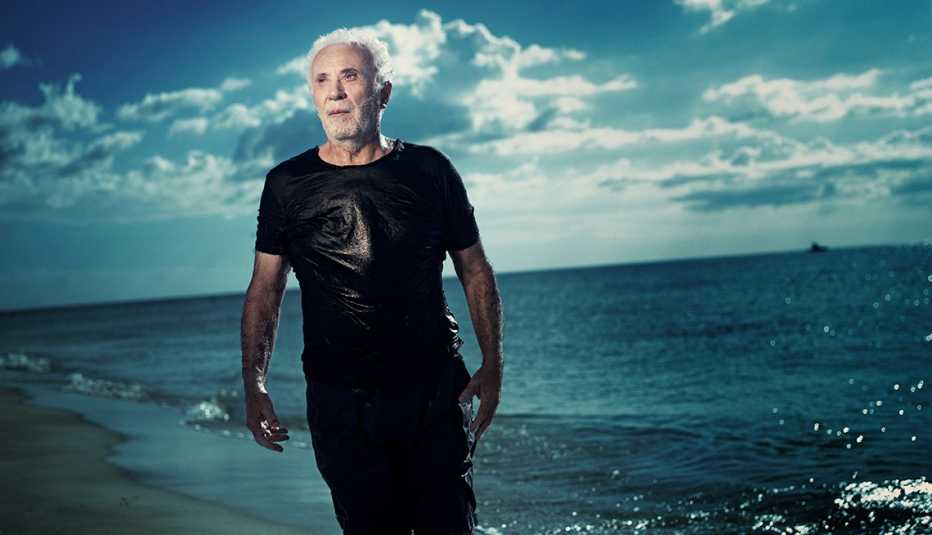AARP Hearing Center


Donnie Navidad
In 2013, Navidad, then 61, saved a woman who toppled from a football stadium in Oakland, Calif.
My friend and I were at the Coliseum to see the Raiders play the Tennessee Titans. After the game, as we were heading out, someone’s phone fell and smashed near us, and then a bunch of people started pointing up. There was a woman up there on the edge of the railing. I turned to Glenn and said, “Do you think she’s gonna jump?” He said, “Oh, boy, she’s falling as we speak."
It’s about a four-story drop from where she fell, and — without thinking — I just put my arms out as she came toward me. Listen, I was in the Marines, and even though that was 40-some years ago, I still think like a Marine; fortunately, I still react like one once in a while. She leveled out flat as she hit my arms, and bounced off me and fell about four feet away. I fell to the ground, too, from the impact, and I blacked out for a minute. When I came to, Glenn was holding up fingers and saying, “How many do you see?” I was OK. The woman was alive but was in a coma for a while and had brain surgery. She later told me she was very grateful — they call her Miracle Girl. But what bothered me was that I didn’t do a better job of saving her. I couldn’t really latch on to her.
"Donnie’s seen a lot. S--- doesn’t scare him. Many people would turn away if they saw 100 pounds dropping down on them. But he just saved her life."


William Ayotte
In 2013, Ayotte, then 69, battled a polar bear that was savagely mauling a woman in Manitoba, Canada.
It was 5 a.m. when I heard somebody screaming, “Help! It’s a bear!” I opened my front door, and there was a 275-pound polar bear sitting on its haunches with a woman in its mouth, waving her around like a rag doll. I thought to myself, I’ve got no weapon or anything. Then I saw my shovel sitting there and found myself going to get it. Once I picked it up, I thought, Well, am I going to do anything, or is that woman going to die? So down the steps I went.
"'Thank you' will never be enough. He gave me life. It’s the most remarkable thing a person can do — risk his life for another human being, a stranger!"
When I got over there, I stepped up and hit the bear in the eye. I’d heard this is the best way to fight a bear. He let go of the woman, and she ran into my house. The bear reached out and grabbed ahold of me, and the mauling was on. He tore off my right ear, and I was waiting for him to bite me again. A neighbor fired a shotgun, but it didn’t do any good, so he jumped into his truck and gunned it toward us. I was on my belly on the ground, watching this vehicle speeding our way, and it stopped about two feet away before the bear let me go.
I spent seven days in the hospital. They worked on me for four hours one day, to staple my wounds, and then for four hours the next day, putting my ear back on. So I came out of it pretty good.
I never saw myself as a hero and still don’t. You’re dealt a situation, and you either respond or you don’t do anything. People say, “Would you have done anything differently?” I haven’t the faintest idea. The only thing I could think was, If I don’t do anything, she’s not going to make it.


Qemal Agaj
In the fall of 2007, Agaj, then 65, rescued a swimmer in Florida.
It was a gorgeous morning on Cocoa Beach when these green-black clouds rolled in and the water got very choppy. I am a photographer and was staring at what was almost an artistic scene. Suddenly, this guy on the beach started yelling, “My wife! My wife! She’s in the ocean and can’t get out!”
































































More on Home and Family
Donovan Webster's Battle With Depression and Addiction: His Wife's Story
The author's widow begins a crusade with this essay
Empty Nest? Here's How to Cope
Talk to each other (and maybe get a dog)